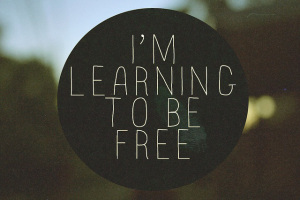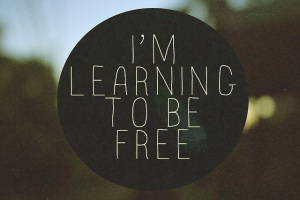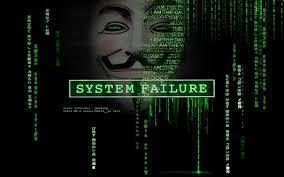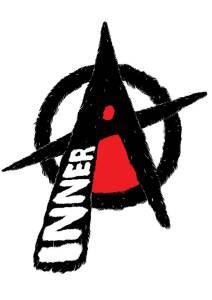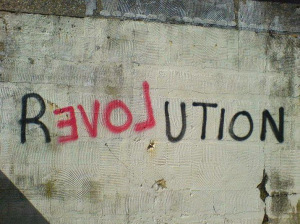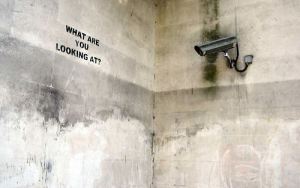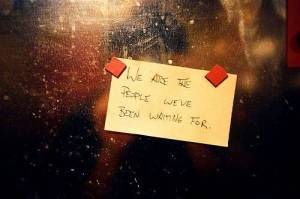Jim Palmer's Blog, page 10
August 24, 2015
Shedding religion… five books later
After walking away from organized religion and professional ministry, I began chronicling my spiritual journey in 2006. The first book was Divine Nobodies: Shedding Religion to Find God (and the unlikely people who help you). This book is especially useful for the person who is seeing in spades that the “Christian” mentalities and views they’ve never questioned in church, need questioning. It’s that feeling that things don’t add up, something is way off, and there must be more. Each chapter in the book tells the story of a person God brought across my path to help me look deeper into my life and relationship with God.
My follow-up book to Divine Nobodies was Wide Open Spaces: Beyond Paint-by-Number Christianity. I noticed in many of the emails I was receiving that people were getting stuck in the anti-religion, anti-church mentality, and not really moving forward in their own spiritual evolution. Wide Open Spaces is my story about living into an alternative, and each chapter revolves around my wrestling through a different aspect of this. The book shares how my relationship to myself, God, others, life, church, the Bible, prayer, etc. changed, and what this looked like.
By now I had deconstructed and left behind much of my Christianity, and yet Jesus continued growing in significance for me. My next book was, Being Jesus in Nashville: Finding the Courage to Live Your Life (whoever and wherever you are). This book tells the story of what it looked like for me to know and follow Jesus outside of Christianity. The book is the culmination of a one-year journey in which I set out to answer the question for myself of what Jesus meant for my life now that I had left behind the religion that claimed his name. The story takes many twists and turns, including two near-death experiences, and the deaths of my mother and father. The book also stirred a great controversy. My Christian publisher refused to published under the charge of heresy and promptly cancelled by book contract.
My fourth book is, Notes from (Over) the Edge: Unmasking the Truth to End Your Suffering. This book began as scribbling on paper in a black spiral notebook. I set my resolve to address the root cause of my own personal suffering, and to know true peace and freedom, which I had failed to find through many years in religion. I recorded personal notes about this endeavor. Notes from (Over) the Edge is divided into five main parts. Part One is a conversation with the reader about how to approach the pursuit of truth. Part Two is a direct, practical, and no-nonsense guide to addressing the root cause of personal suffering, and uncovering true peace and freedom. In Part Three, I confront the teachings of pop Christianity, and how they have hidden or corrupted the true message and meaning of Jesus. Part Four delves into the process of recovering from religious pathology. In Part Five, I discuss how truth applies in the special cases of domestic violence, and depression.
The book I most recently released is: Inner Anarchy: Dethroning God and Jesus to Save Ourselves and the World. In the book I describe how the Christian religion has twisted the true life and message of Jesus, and has preached a powerless gospel that is preventing millions of people from being free. The book challenges people to “inner anarchy,” which is turning away from the false religious and societal beliefs, mindsets, narratives and ideologies that have been programmed into our heads, and turning to what we know is real and true in higher spiritual awareness.
You can find all five books on Amazon:
Divine Nobodies: Shedding Religion to Find God (and the unlikely people who help you)
Wide Open Spaces: Beyond Paint-by-Number Christianity
Being Jesus in Nashville: Finding the Courage to Live Your Life (Whoever and Wherever You Are)
Notes from (Over) the Edge: Unmasking the Truth to End Your Suffering
Inner Anarchy: Dethroning God and Jesus to Save Ourselves and the World


August 6, 2015
Integrity = Authenticity
Consider a new way of thinking about “integrity.” What I mean by “integrity” is not about good or bad, or right or wrong, or what you should or should not do. The integrity I am referring to is about being in tune and aligned with your authentic and highest self. This kind of integrity begins by acknowledging that you are whole and complete at the most fundamental level of who you are. It involves being true to what lies within you – your deepest thoughts and feelings, your inner voice and guidance, your authentic self-expression.
Authenticity is being faithful to internal rather external ideas. Authenticity is the degree to which one is true to one’s own personality, heart, spirit, values, character and commitments despite external pressures. Authenticity places the highest value on the needs of one’s inner being. Authenticity is acting in accordance with one’s thoughts, desires, and needs. Shakespeare wrote, “To thine own self be true.” This kind of authenticity must be the engine that generates your life.
Authenticity = Integrity
(Photo by Darla Winn)


How to create a life beyond religion
16 instructive questions for creating a life beyond religion
What makes you come alive?
What satisfies you most deeply?
What fills you up?
What brings you joy?
What centers you?
What is a source of delight and pleasure for you?
What areas, fields, or subjects are you interested in exploring?
What makes you feel connected to yourself?
What forms of self-expression are the most gratifying?
What makes you feel strong and well in your body?
What would your sense of adventure tell you to do?
What way of being in the world resonates most deeply with your heart?
Where does your sense of curiosity take you?
How are you most compelled to aid the liberation of others?
Where in life are you inspired to be a tangible expression of love, acceptance, and compassion?
What nurtures a greater love for yourself and others?


July 28, 2015
The Shedding Religion Quandary: How to Move Forward
I’ve noticed a pattern. I connect with a lot of people who have shed religion and left it behind. It seems what happens is that a person discontinues their outward religious expressions – going to church, religious duties, activities and disciplines, etc, and they divest themselves of many of their former beliefs about God and related areas. Despite these kinds of changes, I have found that much of the underlying religious thinking continues with the person and just takes a different expression. This happens because these underlying mindsets have been so deeply ingrained in a person that they hold on and morph into whatever direction the person takes next. What makes matters worse is that people in this scenario don’t have the fundamental tools for breaking free and creating a new life. It’s a bad combination – you are fed a lot of religious thinking that sabotages your life, and you’ve never learned the essential tools for deep change and transformation.
This is ultimately why I started a practice of spiritual direction and coaching. I learned this is more involved than what could be worked out through a few message exchanges on Facebook or my blog. If you are interested in this kind of direction and coaching, you can email me at: nobody.jimpalmer@gmail.com. I typically ask people to make a financial donation for each spiritual direction or coaching call, which enables me to do my crisis work with cult survivors and victims of domestic violence. Every situation is different. I do 1-hour calls with people weekly, every other week, or once a month. It’s whatever works for you.


June 28, 2015
Life happens
Lots going on these days!
The girls are out of school for the summer. Jessica got her license and landed her first summer job, working at Nashville Shores Waterpark. Heather and Cera flew to Seattle where Whitney gave birth to Oliver, making me a grandpa! Whit is in the Navy, and stationed at Whidbey Island Naval base. Thankfully her partner, Suzy, will be returning from deployment soon – they both are in the Navy. Meanwhile, I’ve been holding down the fort here in Nashville. I started a new quarter of teaching at school. I teach three classes of my own but have also been teaching two others in the absence of a fellow faculty member. We also have three special needs animals – a broke-leg greyhound retired racer (Gin), a three-legged cat (Ivy), and an elder cat (Marie)… of yeah, and Jayce the fish. I’m also training for an upcoming ultramarathon but it has not been easy with the summer heatwave here in the south. Never a dull moment!
I’m in the process of finishing up a few other projects, and then will resume more regular blogging. I’m also contemplating my next book. More on that later.


June 8, 2015
Would Jesus have committed electronic civil disobedience?
Would Jesus have committed electronic civil disobedience? That’s the question that came to my mind today as I was digging around in information activism.
An information activist or info-activist is someone who believes information should be accessible to the public. Institutions, governments and private companies use the lack of transparency as a defense to conceal wrongdoings. Information activists vigorously probe and investigate these matters in order to expose the truth. Ultimately, the information activist, by uncovering and revealing this information, aims to spark more vigorous reflection and dialogue about issues, hold institutions, governments and companies accountable for their actions, and affect positive change. This is an area where techies and geeks are leading the charge. In an era of unprecedented access to information, investigating is no longer restricted to the spheres of a few journalists working for major publications.
There are a few things you should check out to understand information activism more fully. WikiLeaks is an international, non-profit, journalistic organization, which publishes secret information, news leaks, and classified media from anonymous sources. This WikiLeaks documentary produced by Anonymous is very useful in gaining inside into information activism and the people devoted to it.
Non-profit organization, Tactical Technology Collective, is an international agency dedicated to the use of information in activism. They have started working on a series of documentaries, Exposing the Invisible, which explores the work and tools of information activists. The documentaries shows activists, artists, and hackers (electronic civil disobedience) collaborating to expose what they care about. Exposing the Invisible is also a website that gathers resources activists can use to pursue their own investigations. Another useful website to check out is informationactivism.org, which is also a project of Tactical Tech, and includes a documentary entitled 10 Tactics for Turning Information into Activism, and a Info-Activism How-To Guide.
It would be false to equate information activism solely with prominent whistle-blowers we are familiar with such as Edward Snowden, or organized efforts of information activism such as Anonymous and Wikileaks. There’s a role each of us can play as information activists, and I hope the above links and information is useful.
I have been writing a lot about inner anarchy these days. Inner anarchy involves turning away from false beliefs, mindsets, narratives and ideologies that are programmed into our heads through societal institutions and influences such as religion, education, government, mass media, and popular culture. Infected with these false notions, human beings go out into the world and create societal systems and structures that operate upon and perpetuate these lies, which are the source of division, hatred, greed, injustice, oppression and suffering. Once we turn away from these lies inside ourselves, we find that we can no longer tolerate them in our world because they are a grave violation of our higher awareness and what we know deep inside is real and true.
I have written before about Jesus being an inner anarchist, and published the book Inner Anarchy about this. Jesus was not a passive-ist; he actively challenged, confronted, opposed, subverted, undermined, and sought to abolish the false ideologies of his day and the religious and political powers that were spreading them. Had there been the technological means to do so, there’s no reason to believe that Jesus was not have been an information activist, exposing the lies and bankruptcy of those systems. Jesus challenged people to find their own power and authority within themselves.
The systems, structures, institutions and hierarchies that operate with false beliefs, mindsets, narratives and ideologies are banking on people either being ignorant or apathetic. This is why information activism is so important – it breaks through our ignorance and apathy by exposing the lies and corresponding corruption, injustice and oppression it causes. It opens are eyes and makes us mad. Malcolm X said, “Usually when people are sad, they don’t do anything. They just cry over their condition. But when they get angry, they bring about a change.”


June 3, 2015
A critique of capitalism that capitalists won’t like (spirituality and revolution)
I explore and live at the intersection of spirituality and revolution. I write meditations in the mornings, and scathing critiques of capitalism by night. I’m a misfit. I do not consider myself a Christian, but I view the life and teachings of Jesus as significant to both spirituality and revolution. Hence, my fifth book, Inner Anarchy. Today I read a short book entitled: A Pagan Anti-Capitalist Primer by Alley Valkyrie and Rhyd Wildermuth.
For those of you who might feel like “Pagan” is a dirty word, read this.
For those of you who think the topic of Capitalism has nothing to do with spirituality, read this.
A Pagan Anti-Capitalist Primer offers a very practical, easy-to-understand critique of capitalism. You don’t need a PhD in economics to understand it.
The book describes Capitalism as follows,
A Capitalist is a person who invests their money (Capital) by employing people without money (workers) to produce products or services on their behalf. That is, under Capitalism, one (small) group of people has money while the rest of the world has to work for them in order to have money. Who decided that this was going to be the way the world should work?
And
You’re a worker, part of what Anarchists and Marxists call ‘The Proletariat.’ But don’t worry. So are we. You’re not alone—actually, we’re all subjects of Capitalism, even the Capitalists themselves. But… we suffer a bit more. Being a worker means you’ve got no access to ‘the means of production’, which is just a weird way of saying that you can’t make a living without working for someone else. Ever have the feeling when you don’t have a job and have no money and feel like you’ve suddenly become a pariah to society? A nobody? Almost invisible and definitely ‘useless?’ This is because you’ve got no means of your own production.
And
Capitalism is a social arrangement where the majority of people in any society have only one way to make a living: by working for others. Consider your own situation. Unless you are independently wealthy, you probably have a job. In fact, you need to have one in order to pay rent and buy food, two things which are essential to your survival. If you don’t have a job, you don’t get money, and if you don’t have money, you can’t eat or pay rent. That is, you’ll starve and be homeless unless you’ve got friends to stay with and either get food assistance from the government or go to a food bank. It could be said, then, that you don’t actually have a choice: you must have a job.
The book debunks the typical arguments in favor of capitalism by expounding on the following points: (1) capitalism is not a natural system; (2) capitalism has not always been around; (3) capitalism is not democratic; (4) capitalism creates inequality; (5) capitalism is not progress.
With Capitalism came Industrialization, the worst thing that has ever happened to Nature. INDUSTRIALIZATION is the process of organizing human labor in such a way that productivity goes as high as possible with human input becoming minimal. The ‘promise’ of industrialization was that workers would need to put in less time to make products, and humans would have more free time. But it never, ever happened this way, because the excess profits derived from factory labor and automation wasn’t shared with the workers, it went to the owners. Capitalism requires both infinite growth and infinite resources, which conflicts with the simple fact that our resources on this planet are finite and that abusively depleting those resources affects the health and well-being of all life forms on this planet as well as the planet itself.
And
We Pagans are trying to re-enchant the world, to bring back the magic of the forests and the mountains. We are trying to hear and revere the wild places, the sacred forgotten places, the spirits of ocean and rivers and lakes. And yet Capitalism is always poisoning these places because it considers nothing sacred except profit, nothing holy except wealth.
There is a discussion of alternatives to Capitalism in the concluding section of the book:
The most common questions we get from people after explaining how horrible, destructive, and really mean Capitalism can be, is ‘what next?’ What do we do about it? It’s difficult to answer this question as an anarchist. One of the primary tenets of Anarchism is that no one should ever have power-over anyone else, nor should anyone tell anyone else what to do. Thus, being asked “what should I do?” presents a huge problem for us. Also, there’s another matter. Grand programs and one-size-fits-all solutions don’t work. Soviet and Chinese Communism both operated this way, and besides the many other problems they caused, the one-size-fits-all model led to massacres, gulags, and wars.
Some useful principles the authors offer as a path forward include:
Building Community
Capitalism has caused the destruction of community in every place its taken root. As a matter of fact, it needs to do this, since alienation is one of the mechanisms it uses to keep workers and consumers competing against each other, rather than co-operating.
People who co-operate with each other learn to trust each other and are more likely to help each other through ‘extra-economic’ means. Consider: let’s say you catch a really nasty flu. You cannot go to work, you cannot take care of yourself, you can’t make yourself food or do things for your children.
If you have no community, you must rely on ‘the market’ for your needs. You would have to hire someone to watch your children, order food delivered to your door, and you’ll find yourself spending even more money than you might have if you were well. It may also take you longer to feel better.
This same situation changes radically if you are part of a community. When you let friends, family, and neighbors know that you are ill, they naturally offer to help. A relative might offer to watch your children for a few days, neighbors might bring you food, friends might go pick up medicine for you and come by to help you tidy your place or watch movies with you. And the most radical thing of all? None of them would even think to charge you for these ‘services.’
Communities like this don’t spring up overnight—they take years to cultivate. They can’t be bought, and if they’re strong enough and communicate well, they can’t be bought-out. Groups of neighbors fighting against developers or polluters, building community gardens and co-operative child-care networks are all essential ways of resisting.
Make Common Cause with Others
Make common cause as much as possible, across every racial, ethnic, political, and religious background you can. Find ways to support similar struggles in other countries, on indigenous land in the Americas, and in your own cities and towns. While building community around you, always look for ways to connect your community to other communities, even (and especially!) if those people appear to look and act nothing like you. Resist Capitalist alienation by resisting personal alienation.
Invest in Each Other, Divest from Capitalism
There are many, many more ways in which we ‘invest’ ourselves in the perpetuation of Capitalism. Sometimes these are not our fault, other times they are. Our life choices and desired ‘standard of living’ have much to do with how much we’ll need Capitalism to succeed. If we think we ‘need’ a swimming pool and two cars to be happy, we’ll definitely need the companies we work for to succeed. If we need less, we have less to lose, which is why the poor are always more likely to revolt than the middle-classes.
Do you have credit cards? If so, do you really need them? Credit and debt not only benefit capitalism, but purchasing items that you don’t really need on credit keeps you forever tied to the system.
Do you keep your money in a bank? If so, why? Banks are for-profit institutions that use your money to make more money off the very systems that are destroying our ability to live on this planet. Credit unions, on the other hand, perform the same functions as banks but are non-profit institutions that keep your money in the community. The bank needs you much more than you need the bank. Ditching the bank is a small but significant divestment from capitalism.
Consume Less, Create More
So, when looking at your consumption, always keep in mind that what you buy through the Capitalist system sustains, supports, and perpetuates Capitalism, no matter the product. Consume as little of these things as you can, and learn to create what the market sells back to you.
Resist Often and Everywhere
Capitalism infects all of our social relationships, so every social relationship is a potential place of Revolution.
Consider the way you ‘value’ your friends and experiences with them. Do you sometimes calculate what can be gotten from them versus what you return? You learned this from Capitalism. You should unlearn it.
Think about your relationship to the place you live. Is it a place you ‘use’ or is it a world you inhabit and cherish and care for?
Consider the way you look at strangers. Do you fear them, or try to see the divine in them? Resist fear at every opportunity, and build trust. Remember, competition and fear are central tenets of Capitalism, and the opposite of them is Love and Joy.
Educate Yourself
At the end of the book there is a useful list of additional resources to look into and explore.
You can read a PDF version of the book in its entirety here. You can also check out the authors’ website – Gods & Radicals.
Is the economic system of capitalism a violation of our higher awareness, and is it one of those root issues that need to be addressed if we plan to live in peace and harmony with one another and the planet? To me, this is a question at the intersection of spirituality and revolution, and something we should be exploring.


May 31, 2015
This is a time for inner anarchy
I use the phrase “inner anarchy” to identify the core message of Jesus, which involves a transformational shift in source. Most people operate out of the source of false beliefs, mindsets, narratives and ideologies that have been programmed in our heads through religion and society. The shift involves turning away from that source, and instead turning toward what lies deeper within us, namely a higher awareness or spiritual dimension that we access in and through what is real in our deep feelings. There are many ways people identify this – spirit, consciousness, higher awareness; Jesus referred to it as the kingdom of heaven within us. In and through that source we know that what is real and true is not separation, fear, scarcity, division, bondage and suffering, but love, liberation, harmony, peace, oneness, belonging, and the interrelated nature of all things.
Turning toward that spirit dimension involves speaking from, acting from and living from that source. As we do our own inner work of turning away from the false beliefs, mindsets, narrative and ideologies that rule our lives from within and become more in-tune with that higher awareness or spirit source within us, it impacts who we are in the world. We step out the door and we discover that a lot of our current world is being held hostage by those same false beliefs, mindsets, narratives and ideologies, and that there are all kinds of societal systems and structures that are perpetuating those falsehoods, which are causing human suffering, oppression, injustice, fear, hatred, division, violence and destruction.
The current order of the world is largely a violation of our higher awareness and what we know is real and true in our deepest feelings. We cannot turn a blind eye toward this dynamic and incongruity in the world. Jesus’ life was a demonstration of working this out. On the one hand, Jesus opposed, challenged, attacked, confronted, subverted, and undermined the religious and societal systems and structures of his day that operated upon these false religious and worldly ideologies that oppressed his human brothers and sisters, and divided them against each other and against their own spirit. Jesus’ opposition to these false ideologies and systems was not merely some sort of flash-in-the-pan political or activist endeavor, but was being generated from the power and authority of what was within him… and is within us all. It has real teeth to it, a staying power. It’s not just being against the current order but it’s lifting up out of ourselves what is real… a whole new world and way of being and living as a family in harmony with one another and all living things.
If you’re a woman who has given birth, you know that the birthing and labor process can be quite vigorous, difficult, intense and distressing. And yet, it is infused with love, affection, devotion and beauty. Birthing a new world from the inside out is no different. We do our own inner anarchy. When we give expression to this in the world we confront, challenge, subvert and undermine the current order and empire of lies with our left hand, and we lift up a new way in it’s place. There are many different ways we do this but whatever way that may be, it isn’t for the faint of heart. The old order is not going to go quietly into the night. We are going to have to push it over. As the older is passing away and a new world is lifted up, things will feel destabilized. It’s the labor pains.
The spirituality that Jesus exhibited was centered in love and aligned with that “kingdom of heaven” within him, but it there was a vigorous, scrappy, gritty, courageous and actively engaged quality to it. This was the part that inevitably led to his execution. Jesus would not back down or go away. He confronted the old order and was a stand for the new one.
You don’t have to be a Christian or believe in the God of religion to take up the challenge of inner anarchy. It involves doing your own personal work of turning away from the false beliefs, mindsets, narratives and ideologies that are within you, and turning toward that higher awareness, life, spirit, and consciousness that runs through every one of us. It’s listening, trusting, speaking, following and acting from the power and authority that is within each of us. There’s a inner/contemplative/centered/spiritual side to this, and a outer/anarchist/engaged side to it. A new world and order is not going to just magically appear, but we can create it together. Like childbirth, it will be vigorous, difficult, intense and distressing. And yet, it is infused with love, affection, devotion and beauty.


May 27, 2015
June 1 Showdown: Repealing the Patriot Act
The Patriot Act has been a top news item lately, especially since the most controversial section of it is set to expire June 1st, but not without a fight.
If you haven’t been following recent developments, here are a few important details. Six weeks after the 9/11 terrorist attacks, a rattled Congress drafted and swiftly passed the “USA/Patriot Act,” an overnight revision of the nation’s surveillance laws that vastly expanded the government’s authority to spy on its own citizens, while simultaneously reducing checks and balances on those powers like judicial oversight, public accountability, and the ability to challenge government searches in court. For a more detailed description of how surveillance works under the Patriot Act and how it violates ordinary citizens’ rights, give this a read.
If you investigate the changes made to surveillance law by the Patriot Act you discover they were part of a longstanding law enforcement wish list that had been previously rejected by Congress on numerous occasions. However, in the frightening weeks that followed the 9/11 attack, congress reversed course, pushed by the Bush Administration. The Senate version of the Patriot Act was sent straight to the floor with no discussion, debate, or hearings. Many congressmen did not have an opportunity to thoroughly read, analyze, or vet the bill’s numerous and lengthy provisions. In fact, Rep. Jim Sensenbrenner, one of the original authors of the Patriot Act, later declared that he was shocked by how the law was used to spy on innocent Americans.
In 2013 Edward Snowden, a former contractor for the CIA, leaked classified information from the National Security Agency (NSA) to the mainstream media, which included details of extensive internet and phone surveillance by American intelligence. Snowden, who has been granted temporary asylum in Russia, faces espionage charges over his actions.
The scandal broke in early June 2013 when the Guardian newspaper reported that the US National Security Agency (NSA) was collecting the telephone records of tens of millions of Americans.
The paper published the secret court order directing telecommunications company Verizon to hand over all its telephone data to the NSA on an “ongoing daily basis.”
That report was followed by revelations in both the Washington Post and Guardian that the NSA tapped directly into the servers of nine internet firms including Facebook, Google, Microsoft and Yahoo to track online communication in a surveillance program known as Prism.
Currently under the Patriot Act, everyday citizens are subject to: (1) Roving wiretaps, where you can be caught in a phone sweep, without specific warrant; (2) The infamous “library provision,” where The State can monitor your reading habits, even if you have no connection to terrorism; (3) National Security Letters, a tool used instead of warrants, whereby the FBI can spy on you, and the service providers who share your private info can’t tell you about it; (4) Provisions that require banks to report your financial activities to federal agents.
You may have heard that the Patriot Act is set to expire soon. That’s not quite the case.
Two years after Edward Snowden exposed the National Security Agency’s secret collection of the data of millions of Americans’ private communications, the bulk of those programs remain intact. But the key section of the Patriot Act that the NSA used to authorize that program is set to expire on June 1.
The Patriot Act was a large bill, and not all of it is due to expire. However, three provisions do expire on June 1st: Section 215; the “Lone Wolf provision;” and the “roving wiretap” provision. All of these sections are concerning, but Section 215 is the most troublesome. It’s the authority that the NSA, with the FBI’s help, has interpreted to allow the U.S. government to vacuum up the call records of millions of innocent people.
There is a last hour push by the NSA to re-up on these sections of the Patriot Act. You can make a difference and help secure the first historic move away from mass surveillance.
Go to sunsetthepatriotact.com and make your voice heard.


May 20, 2015
Being “spiritual” is not a navel-gazing, class-privilege, anti-intellectual, passive… thing
Jesus demonstrated a significant balance between maintaining an inner or spiritual equanimity and centeredness, and vigorous engagement in human affairs. Unfortunately what I too often find are people who are so heavenly/religiously/spiritually minded that they are no earthly good. Jesus was not a passive-ist; his spirituality compelled him to direct action in the world. Contrast this with class-privilege spirituality, which I wrote about in my posts: Starbucks Spirituality; and When Spirituality Becomes Navel-Gazing.
In contrast to this I have been talking a lot lately about inner anarchy, which includes:
(1) Turning away from those false beliefs, mindsets, narratives and ideologies that have been programmed into ur heads and ruling our lives from within.
(2) Turning toward our higher awareness inside that emanate from that life/ spirit/consciousness/source/dimension within us.
(3) Lifting that higher awareness up out of ourselves into the world by speaking it naturally to one another in our own words and living it along the everyday paths of life.
(4) Cultivating a true and authentic togetherness among us and others based on the common life, spirit and source that run through us all.
(5) Divesting ourselves from the current order that operates upon those false beliefs, mindsets, narratives and ideologies, and creating a new reality in its place through direct action.
For some people all this talk of the inner life and spirituality might sound like a bunch of gobbledygook, especially if you are coming at things from more of the activist or anarchist side. I addressed this matter in a post: The Spirituality of Anarchism. In my view, Jesus embodied the spirit of what was ultimately called anarchism. I discuss this in my post: Jesus the Rabble-Rouser, and in more detail in my book Inner Anarchy.
We cannot stick our heads in the sand and hope for some magical solution to the suffering of our world. Contrary to the false Jesus-story of institutional Christendom, Jesus is not going to ever float down from the sky to save our world. What Jesus taught instead is that we have the power and authority to do it ourselves.
The sensible thing is to step back and identify the root issues that are holding humankind and our planet hostage, and devise a real plan of action to address it. Social revolution is not a new idea, and I discuss briefly why I think social revolutions have fallen short in this post: The Idol of Self.
Is the economic system of capitalism a violation of our higher awareness, and is it one of those root issues that need to be addressed if we plan to live in peace and harmony with one another and the planet? I’ve been exploring this topic lately and have written a few posts about it:
Should we be questioning capitalism?
Can we do better than capitalism?
If you want to seriously dig into this question of capitalism, a good book to read is: Small is Beautiful: Economics as if People Mattered by E.F. Schumacher. Here’s an online pdf version.
A few quotes from the book:
“The modern economy is propelled by a frenzy of greed and indulges in an orgy of envy, and these are not accidental features but the very causes of its expansionist success. The question is whether such causes can be effective for long or whether they carry within themselves the seeds of destruction.”
“If human vices: such as greed and envy are systematically cultivated, the inevitable result is nothing less than a collapse of intelligence. A man driven by greed or envy loses the power of seeing things as they really are, of seeing things in their roundness and wholeness, and his very successes become failures. If whole societies become infected by these vices, they may indeed achieve astonishing things but they become increasingly incapable of solving the most elementary problems of everyday existence.”
“I suggest that the foundations of peace cannot be laid by universal prosperity, in the modem sense. because such prosperity, if attainable at all is attainable only by cultivating such drives of human nature as greed and envy, which destroy intelligence, happiness, serenity, and thereby the peacefulness of man. It could well be that rich people treasure peace more highly than poor people. but only if they feel utterly secure – and this is a contradiction in terms. Their wealth depends on making inordinately large demands on limited world resources and thus puts them on an unavoidable collision course – not primarily with the poor (who are weak and defenseless) but with other rich people.”
“The economics of permanence implies a profound reorientation of science and technology, which have to open their doors to wisdom and, in fact, have to incorporate wisdom into their very structure. Scientific or technological ‘solutions’ which poison the environment or degrade the social structure and man himself are of no benefit, no matter how brilliantly conceived or how great their superficial attraction. Ever bigger machines, entailing ever bigger concentrations of economic power and exerting ever greater violence against the environment, do not represent progress: they are a denial of wisdom. Wisdom demands a new orientation of science and technology towards the organic. the gentle, the non-violent, the elegant and beautiful. Peace, as has often been said, is indivisible – how then could peace be built on a foundation of reckless science and violent technology? We must look for a revolution in technology to give us inventions and machines which reverse the destructive trends now threatening us all. What is it that we really require from the scientists and technologists? I should answer: We need methods and equipment which are:
– cheap enough so that they are accessible to virtually everyone:
– suitable for small-scale application; and
– compatible with man’s need for creativity.”
“… give a man a chance to utilise and develop his faculties; to enable him to overcome his egocentredness by joining with other people in a common task; and to bring forth the goods and services needed for a becoming existence. Again, the consequences that flow from this view are endless. To organise work in such a manner that it becomes meaningless, boring, stultifying, or nerve-racking for the worker would be little short of criminal: it would indicate a greater concern with goods than with people, an evil lack of compassion and a soul-destroying degree of attachment to the most primitive side of this worldly existence. Equally, to strive for leisure as an alternative to work would be considered a complete misunderstanding of one of the basic truths of human existence, namely that work and leisure are complementary parts of the same living process and cannot be separated without destroying the joy of work and the bliss of leisure.”
Lets just assume for a minute that we all agreed that capitalism had to go. There’s still the question of, now what? What do we replace with it. It’s not like people haven’t considered this and there are some who have created alternatives such as the gift economy. Of course there are some scalability issue here, and making sense of it light of globalization.
Which brings me to my last point. We need to reimagine “spirituality” to include discussions about things like how to make a gift economy scalable, or what it would look like to operate with a transformed mindset and practice of economics that is a manifestation of our higher awareness. Spirituality doesn’t have to be class-privilege or magical thinking; it can be intellectually vigorous, robust and engaged in the challenging questions and opportunities before us. A new world is not going to drop down from the sky upon us. No savior is going to drop down from the sky and fix it. We are who we’ve been waiting for.





